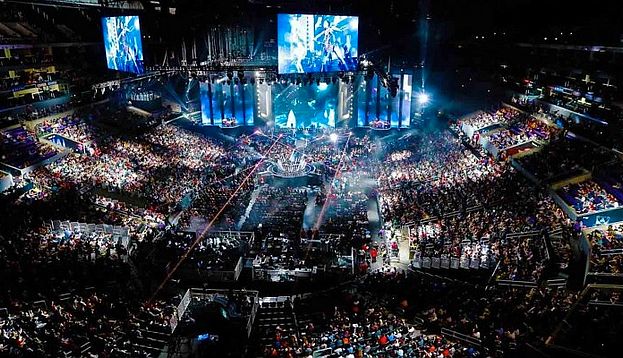Twitch has had a remarkable year with its online broadcasts, ramping up the culture of eSports as we know it and also bringing out a number of players and fans that will follow it to no end. However, the COO of the popular channel, Kevin Lin, there are some things that could use ironing out.
Anyone who’s still concerned with legitimacy needs to move on, because it’s here. And it’s here to stay,” he said, speaking with GamesIndustry International about the phenomena of eSports. He believes that the cycle of growth with eSports will continue, especially now that it no longer seeks outside validation to earn its place.
He added, “The first couple years, between 2010 and 2012, there was a lot of that search, that desire to be compared with a sport,” Lin said. “But over the last few years, because the audience has tuned in and everybody’s paying attention from the advertisers on down, it’s not really so much a search for legitimacy any more. It’s just a search for growth. That’s what people are aspiring to now. The legitimacy problem, in my opinion, is gone.”
However, new problems are in place, and Lin believes they could use addressing. “One big thing is as each [game’s] community grows, you start to see this huge influx of tournaments online and offline,” he explained. “And it becomes this sort of glut of events. There are only so many players and so many teams to participate in those events, and many events’ success really hinges on what teams they can get to come play. Now you’ve got almost every single weekend where players are flying from China to Sweden to the United States, and it wears on them.”
Although an answer isn’t in place for this yet, he believes that increased regionalization of tournaments to cut down travel for competitors could be a key factor, or even “inherently global.”
“People want to see the best teams from around the world play. That’s what they expect,” Lin said. “My guess is the organizations will start to organize with each other. They already do in some sense, making sure not to schedule over each other, but maybe there’s some more coordination.
“You see this constant influx of talent, but a big part of it is the storytelling for that talent, not only how you discover them, but how you help them become popular and well known, how you draw that star power, so to speak,” he continued. “There’s a lot of work to be done there by the whole industry to help that.”
A good ecosystem could also be the ticket to keep the health of eSports growing. “How do you fund these events How do you fund the prize money or pay for player travel Right now a lot of that hinges on sponsorships, ad revenue, subscriptions, and in some games there’s the opportunity to create in-game items that can help fund it, but it’s tough,” he said.. “It’s really tough going for a lot of these guys. One of the big things that will happen this year, and has been happening over the last couple years is bigger and bigger sponsors are coming in to help build that foundation. Hopefully sponsors start to respond, especially big non-endemics, start to pay attention, realize this is a great audience for their brand, realize it’s an interesting and growing cultural phenomenon, and that they begin to embrace that. That will really help boost the scene.”
One other major concern is the controversy of match-fixing, which has arisen a few times in tournaments over the years. “Every sport is not without its own scandal,” Lin said. “You look at traditional sports and they’ve got doping issues. They’ve got match fixing issues too. They have scandals around refs and whether they’re actually being non-biased. It’s just going to happen in a growing industry like this. So is match-fixing a problem Absolutely it’s a problem. Cheating is certainly a problem as well for online tournaments, and even physical tournaments where people figure out ways to apply cheats. And it’s just going to take maturity of the scene. It’s going to take everybody in that scene wanting to drive toward legitimacy to push that. It’s going to involve the game companies, the players, the team owners, the leagues. They’re all going to have to say, ‘Look, we want to create something here, and every time something like this happens, it really takes us a step back. So how do we all move forward together ‘ And it’s going to take a lot of coordination from all parties to do that.”
More input from Lin can be found in this article.

